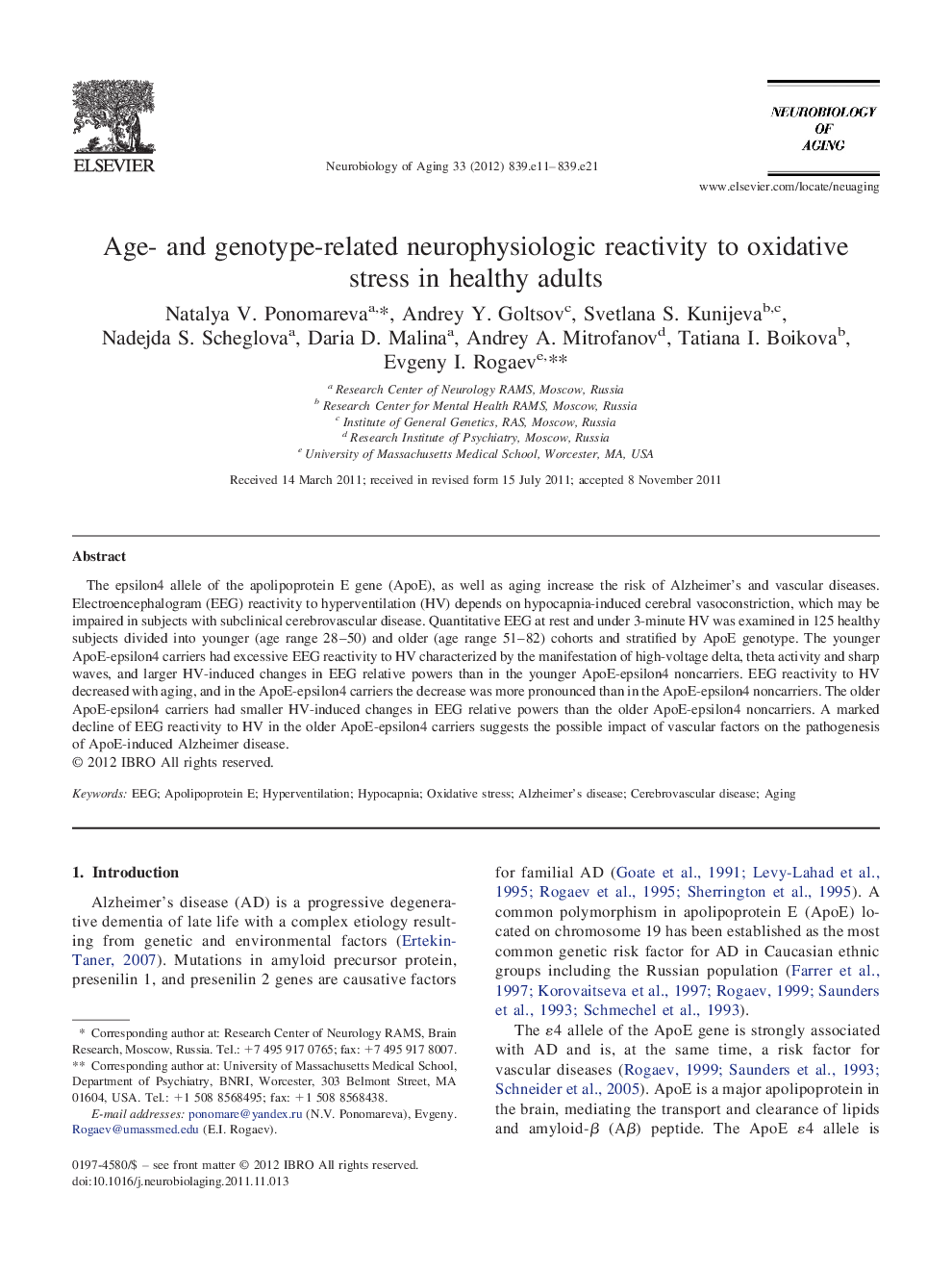| Article ID | Journal | Published Year | Pages | File Type |
|---|---|---|---|---|
| 6809622 | Neurobiology of Aging | 2012 | 11 Pages |
Abstract
The epsilon4 allele of the apolipoprotein E gene (ApoE), as well as aging increase the risk of Alzheimer's and vascular diseases. Electroencephalogram (EEG) reactivity to hyperventilation (HV) depends on hypocapnia-induced cerebral vasoconstriction, which may be impaired in subjects with subclinical cerebrovascular disease. Quantitative EEG at rest and under 3-minute HV was examined in 125 healthy subjects divided into younger (age range 28-50) and older (age range 51-82) cohorts and stratified by ApoE genotype. The younger ApoE-epsilon4 carriers had excessive EEG reactivity to HV characterized by the manifestation of high-voltage delta, theta activity and sharp waves, and larger HV-induced changes in EEG relative powers than in the younger ApoE-epsilon4 noncarriers. EEG reactivity to HV decreased with aging, and in the ApoE-epsilon4 carriers the decrease was more pronounced than in the ApoE-epsilon4 noncarriers. The older ApoE-epsilon4 carriers had smaller HV-induced changes in EEG relative powers than the older ApoE-epsilon4 noncarriers. A marked decline of EEG reactivity to HV in the older ApoE-epsilon4 carriers suggests the possible impact of vascular factors on the pathogenesis of ApoE-induced Alzheimer disease.
Keywords
Related Topics
Life Sciences
Biochemistry, Genetics and Molecular Biology
Ageing
Authors
Natalya V. Ponomareva, Andrey Y. Goltsov, Svetlana S. Kunijeva, Nadejda S. Scheglova, Daria D. Malina, Andrey A. Mitrofanov, Tatiana I. Boikova, Evgeny I. Rogaev,
